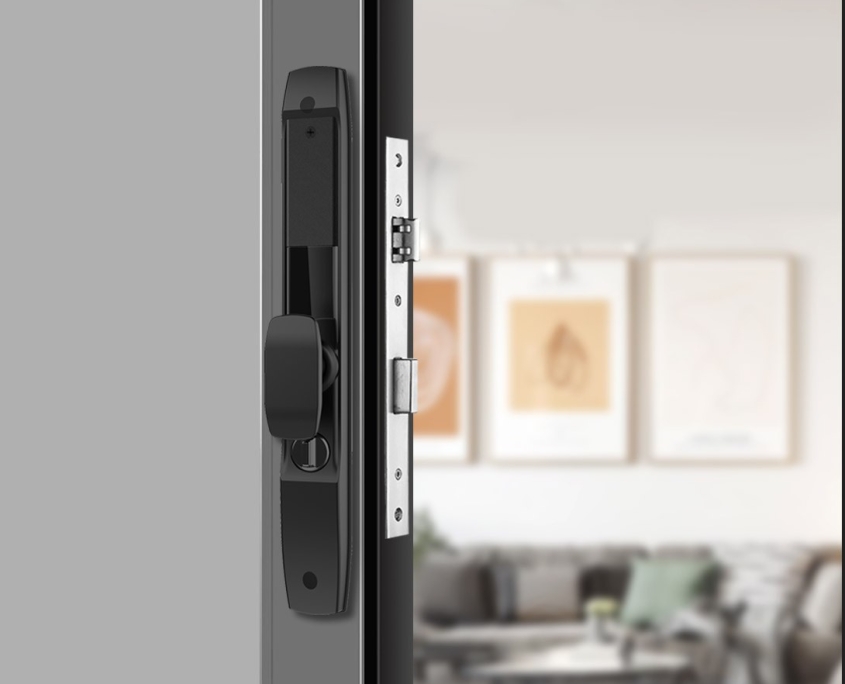Is Bluetooth or Wi-Fi better for smart lock?
Smart locks have revolutionized home security, offering convenience and advanced features like remote access, temporary digital keys, and integration with smart home systems. However, one of the most common dilemmas when choosing a smart lock is whether Bluetooth or Wi-Fi is the better connectivity option.
Both technologies have strengths and weaknesses, and the best choice depends on your specific needs—whether you prioritize battery life, remote access, security, or ease of installation. In this article, we’ll compare Bluetooth and Wi-Fi smart locks in detail to help you make an informed decision.
1. How Bluetooth Smart Locks Work
Bluetooth-enabled smart locks connect directly to your smartphone or a nearby Bluetooth hub (like a smart home bridge). They typically operate within a short range (usually up to 30-50 feet) and require your phone to be nearby for unlocking.
Pros of Bluetooth Smart Locks
Better Battery Life – Since Bluetooth uses less power than Wi-Fi, these locks can last months or even years on a single set of batteries.
No Internet Dependency – They work even if your Wi-Fi goes down, as long as your phone is nearby.
Stronger Security – Bluetooth uses encrypted pairing, making it harder for hackers to intercept signals compared to Wi-Fi.
Easier Installation – No need to connect to a home network; just pair with your phone.
Cons of Bluetooth Smart Locks
Limited Remote Access – You must be near the lock to control it unless you use a Bluetooth-to-Wi-Fi bridge (like Apple HomeKit or a separate hub).
Slower Notifications – Since Bluetooth doesn’t constantly communicate with the cloud, activity logs may update only when you’re nearby.
No Direct Cloud Integration – Without a bridge, you can’t control the lock remotely via apps like Google Home or Alexa.
Best for: Users who prioritize battery life, security, and direct phone access over remote control.
2. How Wi-Fi Smart Locks Work
Wi-Fi smart locks connect directly to your home network, allowing you to control them from anywhere via the internet. They often integrate with voice assistants (Alexa, Google Assistant) and smart home platforms.
Pros of Wi-Fi Smart Locks
True Remote Access – Lock or unlock your door from anywhere in the world.
Instant Notifications – Get real-time alerts when someone enters or exits.
Smart Home Integration – Works seamlessly with Alexa, Google Home, and other platforms.
No Additional Hub Needed – Connects directly to your router (though some models may require a bridge).
Cons of Wi-Fi Smart Locks
Higher Power Consumption – Wi-Fi drains batteries faster, often requiring replacements every 3-6 months.
Internet Reliance – If your Wi-Fi goes down, remote access stops working.
Potential Security Risks – Wi-Fi networks can be hacked if not properly secured (though modern encryption helps).
Possible Connection Issues – Weak Wi-Fi signals near the door may cause delays or disconnections.
Best for: Users who want remote access, smart home compatibility, and real-time updates.
3. Key Comparison: Bluetooth vs. Wi-Fi Smart Locks
| Feature | Bluetooth Smart Locks | Wi-Fi Smart Locks |
|---|---|---|
| Range | Short (30-50 ft) | Unlimited (via internet) |
| Battery Life | 6 months – 2 years | 3-6 months |
| Remote Access | Only with a bridge | Yes, from anywhere |
| Internet Required | No | Yes |
| Smart Home Integration | Limited (needs hub) | Direct compatibility |
| Security | Strong (encrypted pairing) | Good (depends on Wi-Fi security) |
| Installation | Simple (phone pairing) | Requires Wi-Fi setup |

4. Which Should You Choose?
Choose Bluetooth If You:
-
Want longer battery life and don’t want frequent replacements.
-
Prefer local control and don’t need remote access.
-
Prioritize security over smart home features.
-
Have a smart home hub (like Apple HomeKit) for occasional remote access.
Choose Wi-Fi If You:
-
Need remote locking/unlocking from anywhere.
-
Want real-time notifications for door activity.
-
Use voice assistants (Alexa, Google Assistant) regularly.
-
Don’t mind replacing batteries more often.
5. Hybrid Solutions: The Best of Both Worlds
Some smart locks (like August Wi-Fi Smart Lock or Yale Assure Lock 2) support both Bluetooth and Wi-Fi, either through built-in Wi-Fi or an add-on module. This gives you:
-
Bluetooth for local access & battery efficiency
-
Wi-Fi for remote control & smart home integration
If you can’t decide, a hybrid lock might be the perfect solution.
6. Security Considerations
Both Bluetooth and Wi-Fi locks are secure if properly configured, but:
-
For Bluetooth: Ensure your phone uses strong authentication (like biometrics) to prevent unauthorized access.
-
For Wi-Fi: Use WPA3 encryption, a strong password, and a separate IoT network to minimize hacking risks.
Final Verdict
-
Bluetooth smart locks are more energy-efficient and secure but lack remote access without a hub.
-
Wi-Fi smart locks offer full remote control and smart home features but consume more power.
If you want convenience and automation, go for Wi-Fi. If you prefer long battery life and local control, Bluetooth is better. For the ultimate flexibility, consider a hybrid model.









